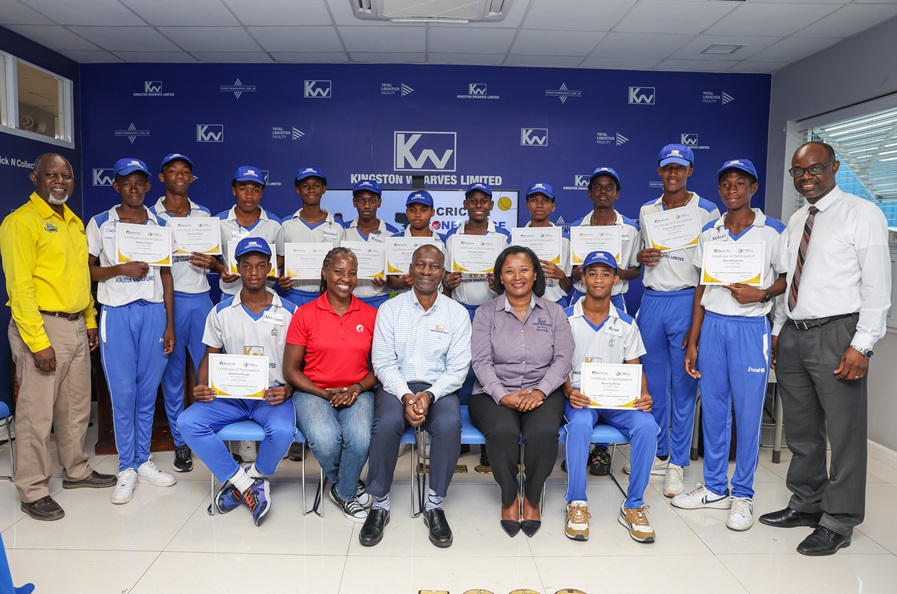Kingston Wharves hosts groundbreaking Special Skills Workshop for U15 cricket captains
The workshop was designed to go beyond the boundaries of the cricket field, focusing on essential life skills such as conflict resolution, effective communication, and media interview techniques. These skills are crucial for the development of young cricketers as they progress in their careers and face the demands of modern sports, both on and off the field. The day concluded with a guided tour of the Kingston Wharves port, which was met with enthusiasm by the young participants.
Mark Williams, CEO of Kingston Wharves, emphasized the broader vision behind the initiative. "It's more than just playing the game. Cricket is now a business, and we need to ensure that these young athletes are fully prepared for the world. This means speaking well, having confidence in who they are, and, most importantly, understanding conflict resolution. We may not always agree with an umpire's decision, but we must respect it. Today's workshop is about building leaders and instilling good values in these young cricketers."

The first session, led by Dr. Jayson Downer, a forensic psychologist and founder of Men of God Against Violence and Abuse, centered on conflict resolution. Dr. Downer highlighted the importance of understanding and managing conflict, not just in cricket but in everyday life. "Conflict is a part of daily life, and it's crucial for these young men to learn how to handle it effectively. Whether on the field or in their daily routines, the skills they’ve learned today will be essential as they navigate challenges, including those they may encounter in school."
Ryan Littleton, captain of the Westmoreland cricket team, found the session particularly valuable. "If there's any argument or issue, we can address it within the team. If I can't resolve it, I know I can talk to the coach or manager," he said.
Abraham Waugh, captain of Kensington, who will lead his team against Westmoreland in Friday’s final, echoed Littleton's sentiments. "The workshop really taught me to understand my teammates' perspectives and consider their thoughts, which will be crucial for Friday's match."
The communication and media training session, conducted by well-known media personality Paula Ann Porter-Jones, was lively and interactive, providing the captains with practical skills to manage their interactions with the media confidently.
Oneil Cruickshank, the cricket operations and development manager at the Jamaica Cricket Association, spoke about the workshop's objectives and its future role in the competition. "Ideally, we would have loved to conduct this training for all team levels, but this is a start. We've identified the captains to participate in this workshop as part of our effort to build leadership in these young athletes. The skills they learn here—conflict management, communication, media presentations—are vital and have nothing to do with play. This workshop is timely, and I can confidently say it will become a feature of our pathways program going forward."
The success of this inaugural workshop marks a significant step in the holistic development of Jamaica’s young cricketers, equipping them with the tools necessary for success on and off the field.
